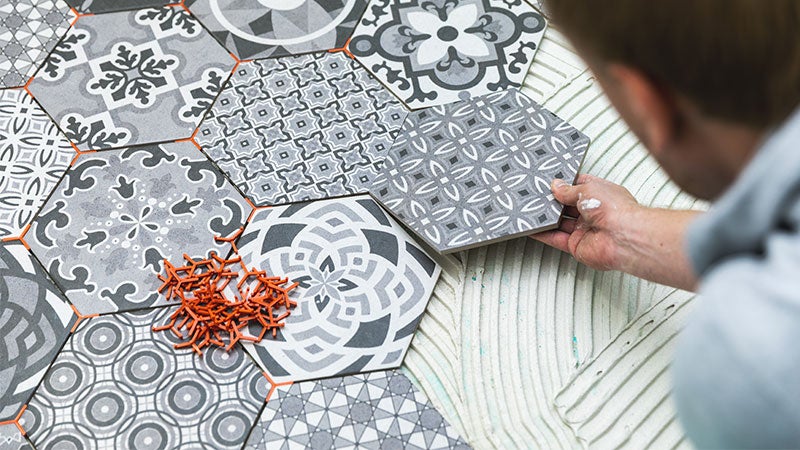How much does it cost to remodel a shower?



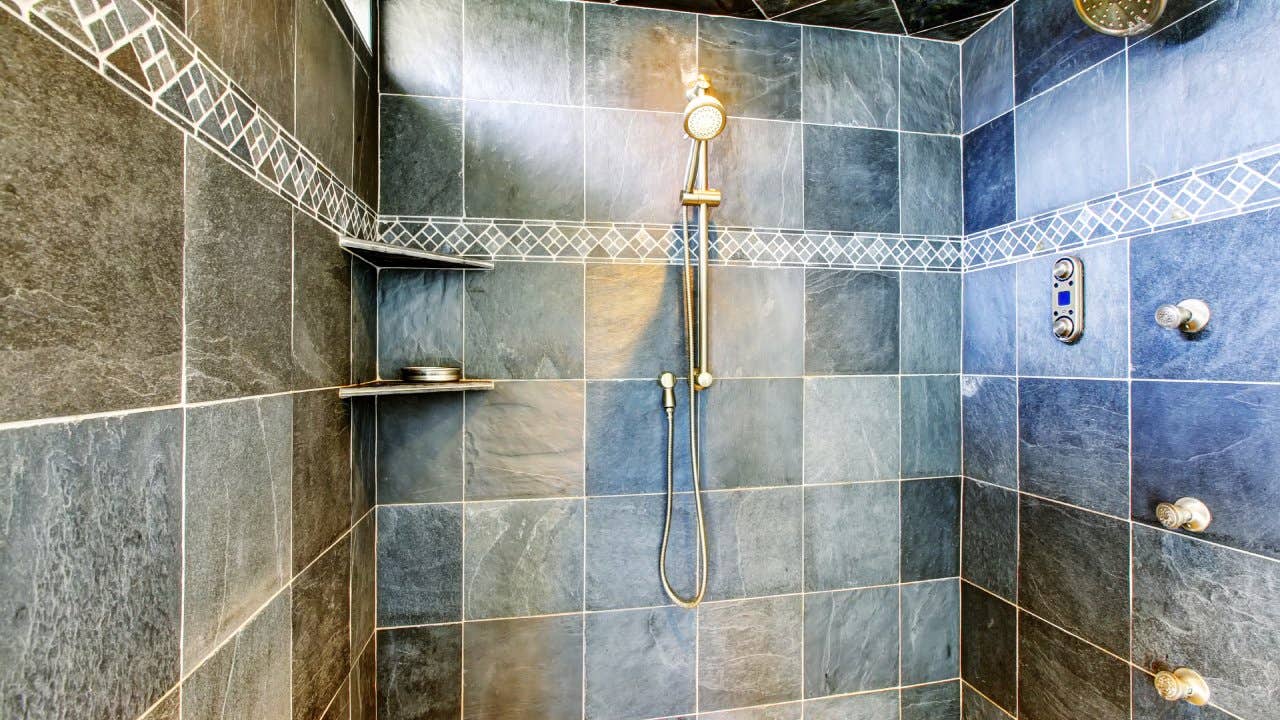
Picture a spacious glass-and-marble jewel box, plunged in light, billowing with steam. It’s furnished with a leafy hanging fern and a smooth teak bench, and as you luxuriate on it, you’re washed with a warm, pulsing summer rain.
With a setup like this, you’d sing in the shower, too.
Bathroom remodels have boomed in popularity over the last couple of years: Americans spent $51 billion on them according to the latest U.S. Census Bureau American Housing Survey. And showers often top the list of priorities when it comes to significant upgrades. In Fixr.com’s “Bathroom Trends Report 2023,” 65 percent of the surveyed interior design pros tapped the shower as the most in-demand design feature for bathrooms this year.
A shower remodel can be both an attainable luxury and a strong return on investment for homeowners. HomeAdvisor, a website connecting homeowners with contractors, estimates a shower remodel’s average price at about $8,000. With that said, a frugal refresh can be made for as little as $1,000 (if you go for a prefab-parts kit) all the way up to $15,000 or more (picture luxe materials, customized liners, and maybe even a waterproof sound system).
Tempted to plunge in? Here’s what you need to know.
67%
Source: Remodeling 2023 Cost vs Value Report
What influences the cost of a shower remodel?
The cost of a shower remodels depends primarily on how extensive a renovation you want. HomeGuide, a service that connects homeowners and contracting pros, gives a range of $400 to $3,000 for a partial remodel of an existing shower, while replacing an existing stall would run from $1,000 to $8,000, and a total remodel — replacing the tile and fixtures and reconfiguring the space to create a walk-in shower — could be as little as $3,500 or as much as $15,000.
More specifically, the biggest factors are the size of the space, the cost of labor in your area, and choices in the number and quality of fixtures, such as hand showers and shower heads, and finishes, such as tile. Extras like radiant floor heat, steam showers and “body tiles” (wall tiles that spray water) also inflate the bottom line.
Labor
Aside from the varying costs of materials, labor is perhaps the biggest variable that will impact the cost of your project. Of course, labor costs vary greatly by region and locality, and are likely to ebb and flow depending on the market in your area. But generally you can count on them comprising 40 to 60 percent of the final tab, according to HomeGuide.
When it comes to shower upgrades, most homeowners opt for a general contractor who specializes in baths and has a solid network of licensed and insured subcontractors. GCs have different ways of calculating their costs, which include not only hiring and coordinating subs but also covering infrastructure items, like framing, subflooring, preparing walls for grab bars, waterproofing and drains; unexpected setbacks, like leaks; insurance, to cover the cost of said setbacks; and incidentals, like providing a dumpster for the debris.
Alternatively, some source a bath design-build firm that can take care of every detail, from the placement of the drain to the height of the rainfall showerhead. A design firm might cost more overall than a GC, but their all-in-one services can be useful if your shower project involves changing the bathroom’s layout or footprint.
Quality of materials
It’s no secret that the caliber of materials you choose for any remodeling project will impact the bottom line, and showers are no exception.
The size of your shower in terms of square footage and the tiling material you select will be a major expense for any shower remodel. Traditional ceramic tile is a default choice for many budget-conscious homeowners, running as little as a dollar or two per square foot, HomeGuide notes. Then, in ascending order, come higher-end materials like glass, granite and marble (starting at $5 per square foot). If you want slabs of stone or porcelain, start thinking in the $13-to-$45 range—all the way up to $105 per square foot for other solid surfaces.
You also have to think about square footage and coverage. Floor-to-ceiling tile can yield more of a luxury look, but of course it’ll be double the price.
Finally, consider your shower door: glass? Acrylic? Framed or unframed? Sliding or open-out?
Fixtures
Similar to the broad range of tiling options, shower fixtures run the gamut from budget-friendly to luxury-grade. A pre-packaged shower head and knobs can be as inexpensive as $200 or less. Higher-end fixtures in lavish finishes with precision or other special features can easily run from $1,000 to $2,000 or more.
Pre-existing bathroom: Are you changing size or footprint/layout?
Are you moving your shower’s location, installing a free-standing one in addition to the bathtub, or greatly increasing the size of your existing shower? (Double showers — with space enough for two — are a hot thing these days.) Prepare for major surgery, as these sort of changes might well entail relocating or replacing plumbing, and possibly some electrical wires as well. Needless to say, this can greatly impact the budget for your project.
84%
Source: 2022 U.S. Houzz Bathroom Trends Study
Shower remodeling trends
What do consumers want most? Many start with replacing the classic hot-and-cold-water mixing valve encased in a circular or lever-handle trim kit. A trendy thermostatic mixer, in contrast, allows you to set and hold temperature and volume, making it one of most popular bath upgrades, says Houzz, the home-improvement site.
Then there’s the whole concept of a separate shower stall. Traditional bath-and-tub combo, out; a cubicle with doors or enclosures that separate the shower from the rest of the bathroom, in.
Other wants:
- Rainheads. These plate-size sprayers, typically mounted overhead, have been around for a while, but over half of homeowners doing bathroom upgrades want them, according to the 2022 U.S. Houzz Bathroom Trends Study. They retain a certain allure, thanks partly to their name and all-encompassing sprays.
- Barrier-free enclosures. Walk right in and — if that’s a flip-down or freestanding bench — sit right down. Aside from accessibility, curbless enclosures offer a seamless, space-enhancing look.
- More elbow room. Bigger feels more luxurious. Half of all renovating homeowners (51 percent) increase their shower size, the Houzz survey says.
Other considerations
Keep in mind that many other variables can impact the cost of your shower remodel. Depending on your city’s permit requirements, you may need to file paperwork and pay for certain elements of the project (like parking a dumpster for demolition or moving a wall, for example). Permit costs hinge on your location and the magnitude of your project, but $200-300 is a common range.
Hazards like water damage or mold remediation can also crop up, and these are things that must be dealt with for the health and safety of your family. If you suspect structural damage or mold could be hiding beneath your existing shower, consider building buffer time and budget into your plans.
Shower remodel cost by type of shower
The following values are ballpark estimates based on data from home remodeling sites Angi and HomeGuide.
Prefabricated shower insert
The cost of a prefab shower insert can start as low as $300. When you factor in professional installation, this type of remodel is estimated to run about $210 per square foot. For an average-sized shower, this is about $1,150.
Walk-in shower
A walk-in shower can run anywhere from $700 to $15,000. Deciding factors on price will include whether you’re using a kit or ordering a custom build, hardware, the type of tile you select and the size of the shower itself.
Tub-and-shower combo
For those who value the versatility of a bathtub and shower in one, this type of remodel can run from $1,400 to $8,000. Many projects of this type cap out around $4,000 in costs, but features like tub jets can drive up the price.
Bathtub to shower
This type of remodel can be one of the quickest and least expensive options. Starting at $1,000 or so, this type of project can run up to $8,000 or more, depending on materials used, and whether the contractor is using a kit or constructing a custom build.
Benefits of a shower remodel
In addition to making your daily routines more pleasant, there are other benefits to remodeling your shower.
Increase home value
According to Remodeling, the construction trade publication, the national average return on investment (ROI) for bathroom remodeling projects is 67% in 2023. That puts bathroom projects – shower remodels included – fairly high on the list of home improvements that recoup their costs. With up-to-date bathrooms and kitchens of particular interest to prospective buyers, you can renovate with reasonable confidence that your investment will pay off down the road.
But don’t go overboard. Interestingly, the more lavish your bathroom remodel, the lower your ROI, according to Remodeling: Those that use super-luxe features and materials may recoup only 37 percent of their cost.
Safety/aging in place modification
If your renovation is for the sake of safety, it’s hard to place a value on what the project is worth. Modifying your existing shower to accommodate a disabled or aging family member can be well worth the cost– especially if the alternative is to relocate.
Efficiency and sustainability improvement
Making green improvements to your shower can help to save the environment and your utility bills. From selecting sustainable materials (bamboo, concrete or reclaimed tile) to installing eco-friendly features (a timer on your vent fan or a water-conserving shower head), small changes can make a big difference over time.
DIY shower remodel vs hiring a professional
The construction pros can be pricey, but they’re often a necessity, as shower upgrades can be complicated. Let’s say you want to tear out a 3-by-5-foot alcove tub and replace it with a same-size shower area, plus new tile and fixtures. Removing a bathtub can be an undertaking, and not only because it’s a drag to break up and carry out debris. The tub previously functioned as a basin. Without it, the contractor will need to frame and install a shower pan and other waterproofing elements before preparing the floor for tile.
Or let’s say you are determined to have a curb-free walk-in shower. Curbs serve a purpose: They can ward off water overflows. To eliminate one, and have a shower floor sit flush with the rest of the space, the contractor must lower the framing under the shower pan or raise the floor outside the shower.
Even a shower built from a pre-fab kit requires some plumbing know-how. Bottom line: Unless the changes are purely cosmetic or extremely simple (like swapping a fixture), most shower remodels should be left to the professionals.
How to finance a shower remodel
Home equity loan
A home equity loan allows you to borrow against the equity you’ve built in your home. Because this kind of loan is secured by collateral – your house – its interest rates are generally attractive, and you can borrow only as much as you need for the remodel. A home equity line of credit (HELOC) could also work, offering you a revolving balance to draw against, as opposed to a lump sum — perfect if your project’s exact cost is indefinite or you plan to pay the contractor in installments.
Cash-out refinance
A cash-out refinance also allows you to tap your home equity: You swap out your current mortgage for a larger one, pocketing the difference in cash. However, this option could be overkill, unless the shower remodel is in addition to other large home improvement projects (or of course, you were planning to refinance your mortgage anyway).
Personal loan
The most costly of these options, a personal loan (sometimes referred to as a home improvement loan) is often the speediest and easiest to finance.
Because personal loans are a type of unsecured debt, the interest rate will typically be quite a bit higher than a home equity loan or cash-out mortgage refinance. But unlike the other options, you may be able to finance a personal loan as quickly as within the same business day.
Frequently asked questions
-
A shower refurbishment generally costs between $1,000 and $15,000. This kind of project can run on the lower end of this range for smaller-scale fixes like a DIY hardware upgrade. More expensive refurbishments generally involve professional contractors, more significant upgrades and higher-end finishes.
-
The average cost of tiling a shower runs about $900 on average, according to home improvement site Angi. A lower-cost project involving budget materials and DIY labor may be completed for as little as $200-300; high-end estimates run closer to $2,000, depending on what kind of tile is used and the cost of professional labor.
-
The timeline for a shower remodel will depend on whether you’re tackling the project yourself or hiring professional contractors (more expensive, but also more efficient). Tile work is typically more time-consuming to install than other materials, like acrylic panels; but barring unexpected hitches, you can expect the process to take a week or less. Often it can be tackled in a day or two.
-
Consider replacing your shower every 10-15 years. The frequency and magnitude of upgrade you’ll want to consider will depend on the materials and finishes involved, but be mindful that elements like grout and glaze can deteriorate at different rates.
The bottom line on shower remodeling costs
Shower upgrades are what make a bathroom remodel major — especially if you want to enlarge, relocate or have them replace the tub — all trends that are gathering steam nowadays. Angi says shower upgrades constitute 5 to 25 percent of a total bath renovation’s costs.
Of course, state-of-the-art bathrooms have a big wow factor, ranking among the top projects that appeal to buyers, according to a 2022 Remodeling Impact Report by the National Association of Realtors. The NAR says new baths also are likely to add value to the home for resale. But don’t count on getting all your money back: According to Remodeling, the rate of return on bath remodels in general is about 37 to 67 percent (interestingly, the more expensive the remodel, the lower the return).
Regardless of the cost, remodeling your shower is likely a project that will impact your daily routine for the better, and it can be a noticeable plus for prospective buyers when it comes time to list and sell a home. Hello, you stone-lined, spiffy, sliding-door spa shower. Where have you been all my life?
You may also like
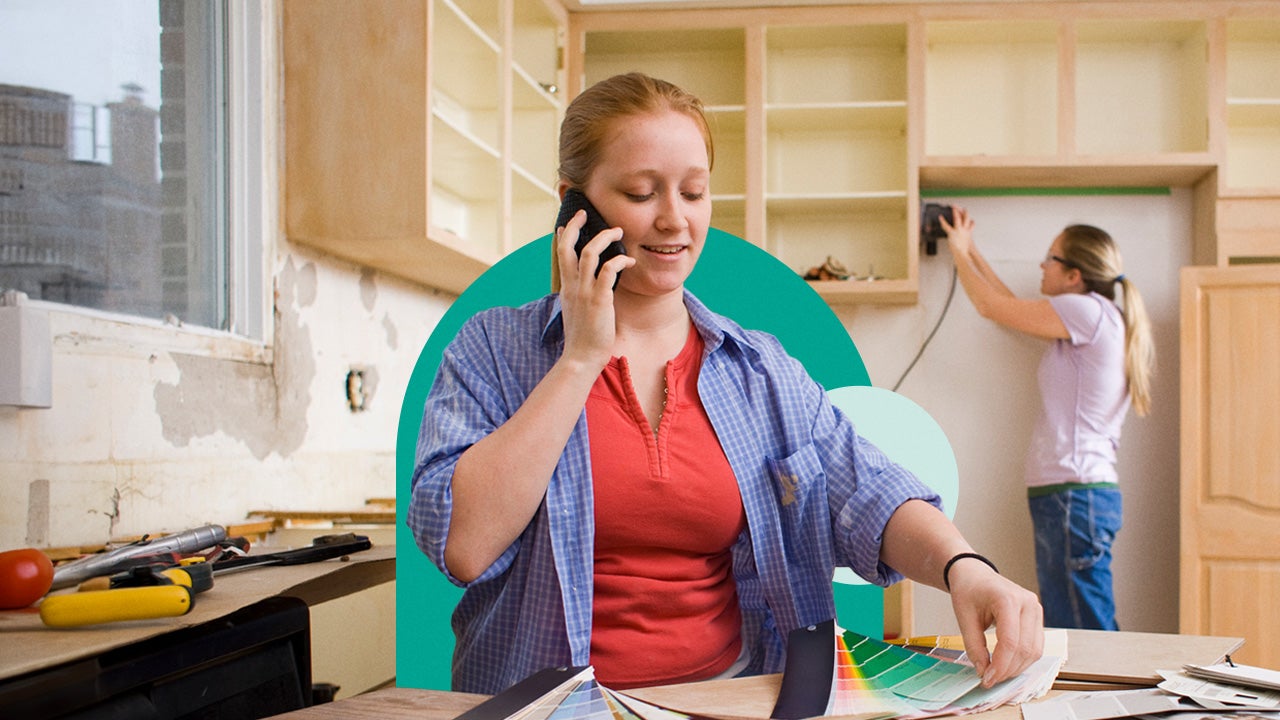
What does it cost to remodel a kitchen?
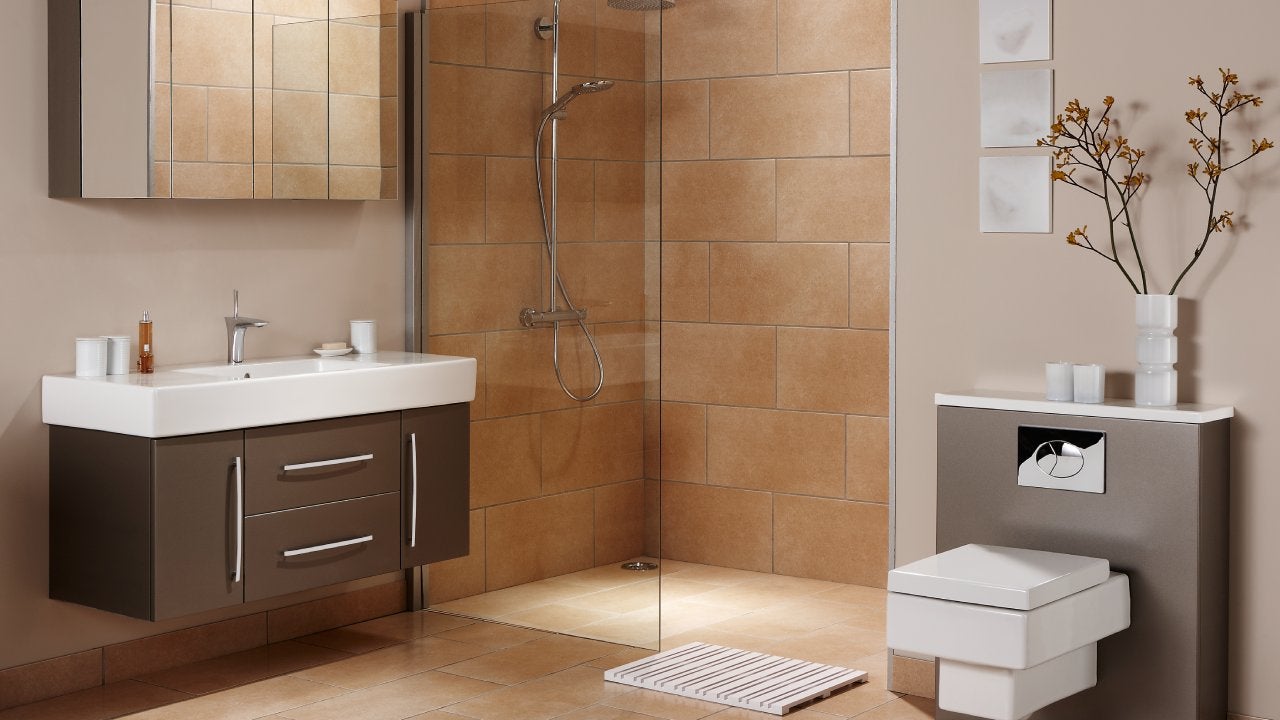
How much does it cost to add a bathroom to your home?
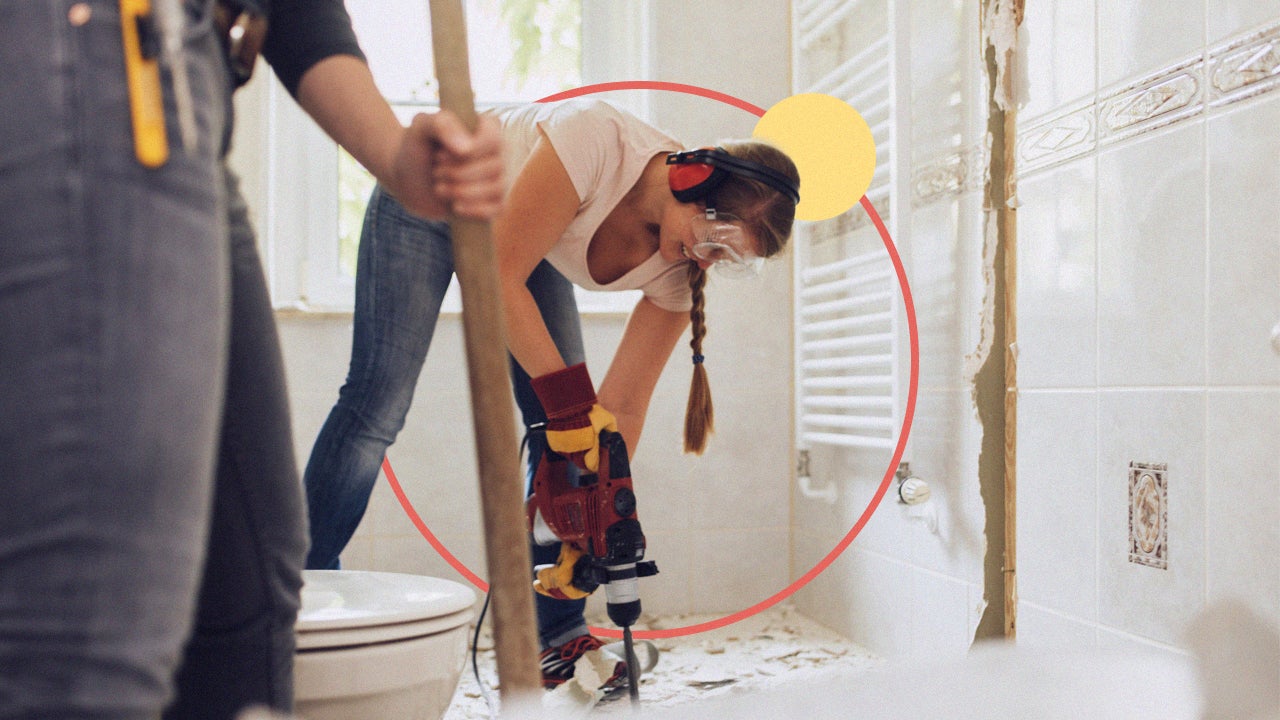
How much does a bathroom remodel cost?


